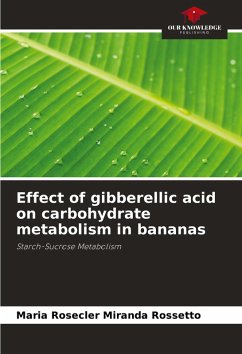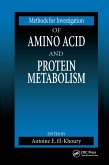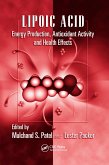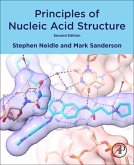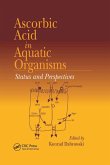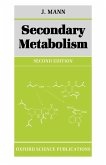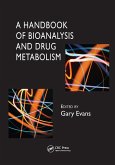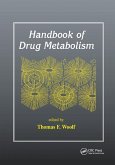Ripening involves a series of metabolic transformations related to a dynamic enzymatic complex, resulting in the synthesis/degradation and conversion of compounds that will make the fruit acceptable for consumption. The banana (Musa acuminata) is a climacteric fruit that uses starch as its main carbon source, which is reduced during this period from levels ranging from 12 to 20 per cent to less than 1 per cent. Alongside this degradation, the sucrose content can reach up to 15 per cent, depending on the cultivar. Gibberellic acid is a plant hormone responsible for maintaining the firm texture and soluble solids content and delaying the ripening of many fruits. In banana carbohydrate metabolism, it was observed that it did not alter the respiratory peak and did not interfere with ethylene synthesis. However, it delayed the degradation of starch and the accumulation of soluble sugars for three days. This delay was accompanied by a decrease/delay in the activity of the enzymes that degrade starch and synthesise sucrose, - and beta-amylase and sucrose phosphate synthase, respectively, and no difference was observed in the increase in gene expression of sucrose phosphate synthase and phosphorylases.
Bitte wählen Sie Ihr Anliegen aus.
Rechnungen
Retourenschein anfordern
Bestellstatus
Storno

